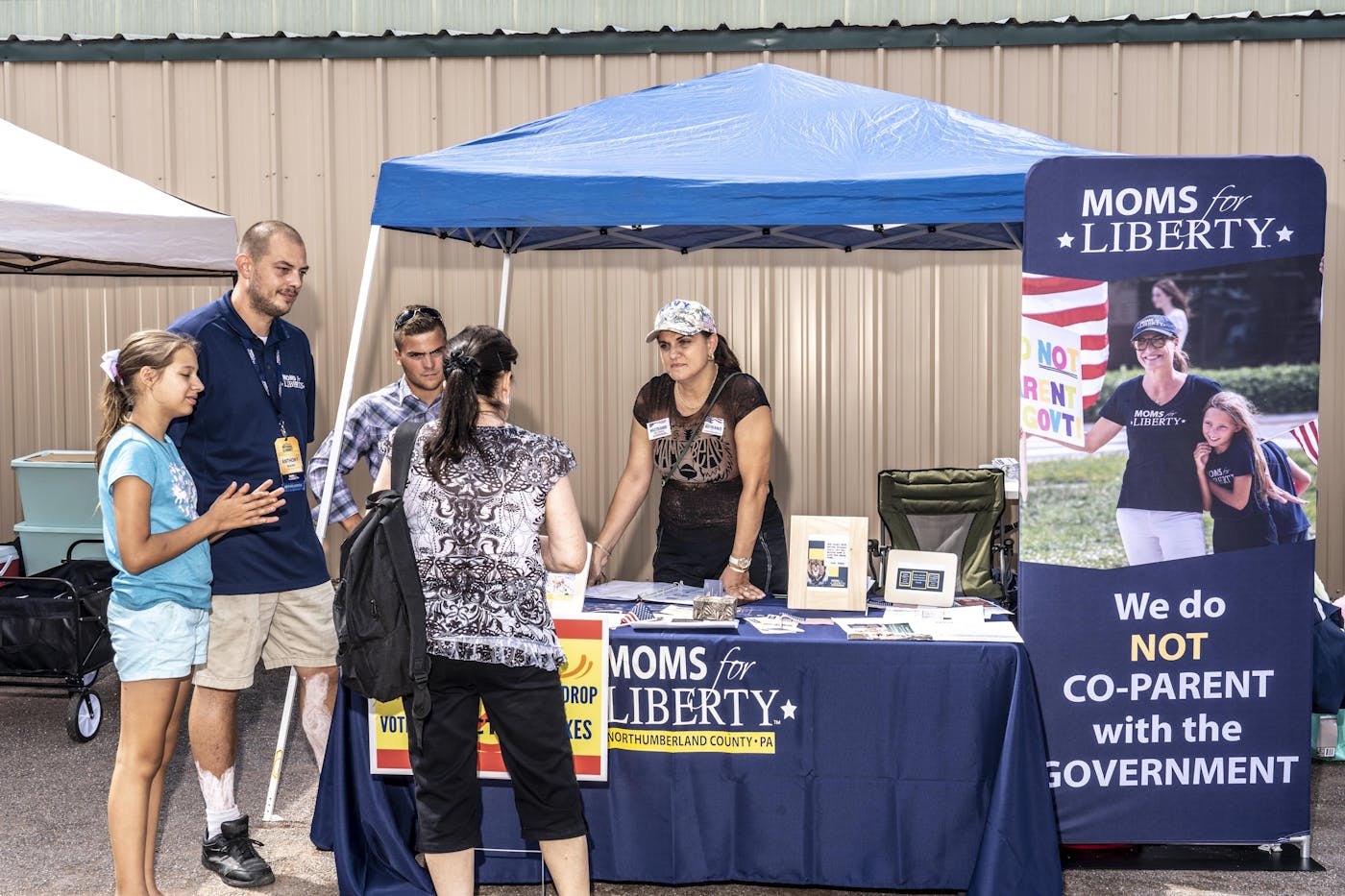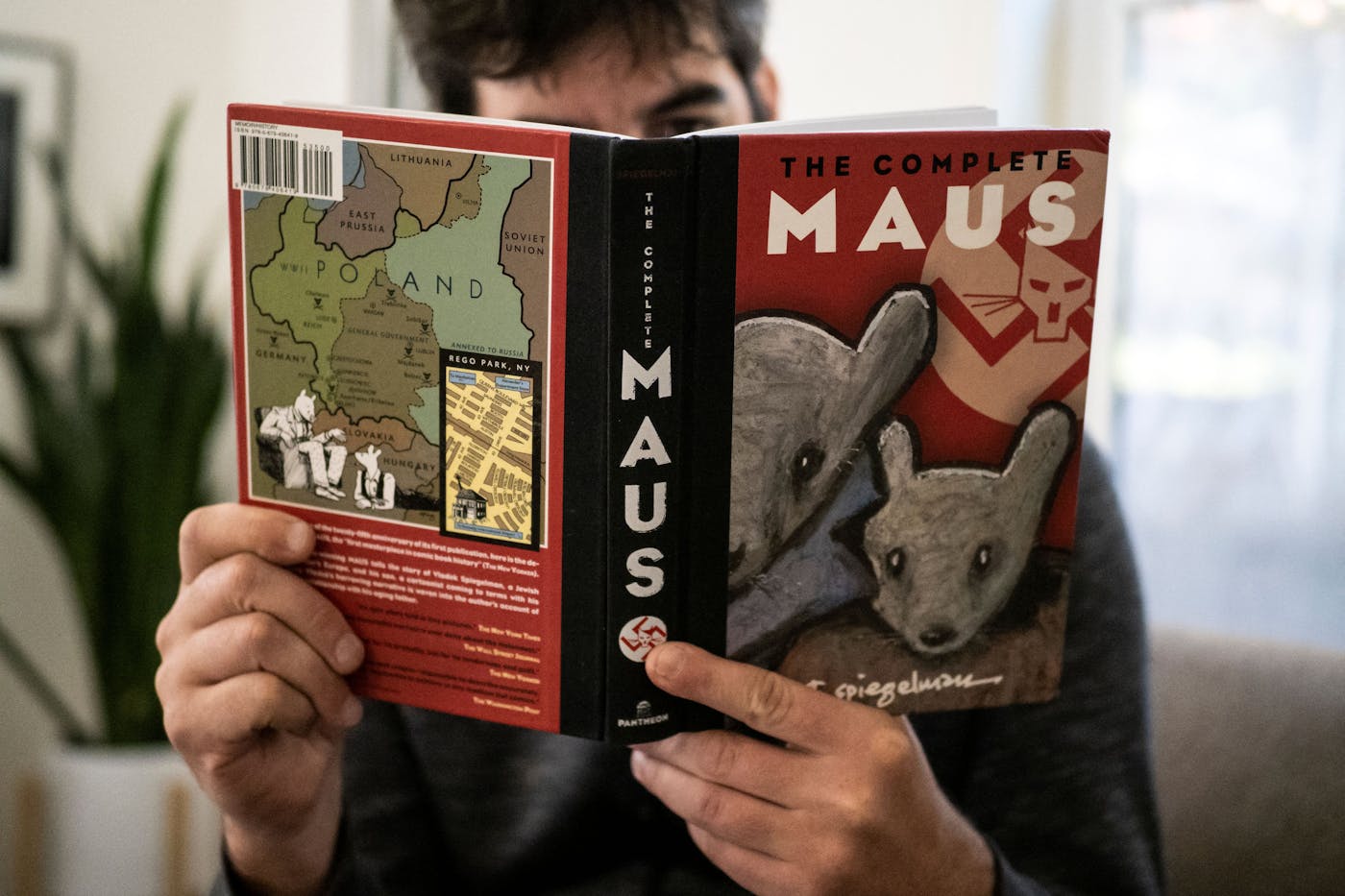Citizens have led fiery campaigns against books they deem objectionable since before America’s founding. As early as the 1650s, Massachusetts Bay colonists banned and burned William Pynchon’s pamphlet “The Meritorious Price of Our Redemption” because it allegedly failed to adhere to Calvinist beliefs. Book bans were common in the South in the run-up to the Civil War, and nationwide during the McCarthy era.
But in the last few years, something changed. More people began writing complaints and demonstrating at meetings. They grew far more vocal. And they started to rally around the same texts, slamming them as “pornographic” or for supposedly preaching “critical race theory.” Since 2021, book banning—specifically, blocking access to books in schools and libraries—has become an organized movement, one backed by a powerful network of politicians, advocacy groups, and conservative donors.
More books are being challenged—for possible restriction or removal from libraries and curricula—than have been in decades. In the first half of the 2022–23 school year, PEN America, the free speech organization, tracked nearly 1,500 book bans nationwide, affecting 874 unique titles. Books centering on people of color and LGBTQ+ characters have been disproportionately targeted. In some GOP-controlled states, legislation has led to the widespread removal from schools of books with references to sex and sexuality, as well as race and racism.
The first week of October is the American Library Association’s Banned Books Week, and to mark the occasion, The New Republic will launch a Bookmobile Tour to distribute texts conservatives have decided children simply should not read.
CENSORSHIP CHIEFS
Ron DeSantis
Under Governor DeSantis, Florida became the first of many red states to enact laws making it easier for parents to challenge books in school libraries that they believe are pornographic, deal improperly with race, or can otherwise be considered inappropriate. DeSantis was applauded by a Moms for Liberty (see below) founder for “blazing a trail” on school book bans.
Sarah Huckabee Sanders
Governor Huckabee Sanders signed a law imposing criminal penalties on Arkansas librarians who knowingly provide “harmful” materials to minors—though a federal judge has temporarily blocked sections of the law, calling them too vague. In January, Sanders also signed an executive order to prohibit “indoctrination” and “critical race theory” in schools.
Greg Abbott
The Texas governor signed a law banning sexually explicit books from schools. The law requires vendors to rate books as “sexually relevant” or “sexually explicit” to determine if they require parental approval or full removal. During the 2021–22 school year, Texas districts banned more books than those in any other state.

Moms for Liberty
Founded in 2021, Moms for Liberty has rapidly expanded into a national organization with almost 300 chapters. Its strategy is to take over school boards and label dissenting teachers, librarians, and parents “groomers.” The organization has also endorsed legislation in line with its goals like “Don’t Say Gay,” the notorious Florida law hamstringing discussions of sexuality in many classrooms. The Southern Poverty Law Center has labeled Moms for Liberty an extremist group.
READING REBELS
Suzette Baker
In March 2022, Baker was fired as head librarian of the Kingsland Branch Library in Llano County, Texas, for “insubordination” and “failure to follow instructions,” which she said included her refusal to take down a display of banned books. Among the titles that have attracted the ire of local officials: Between the World and Me, the Ta-Nehisi Coates book that was a finalist for a Pulitzer Prize.
Debbie Chavez
Chavez quit her school librarian job in Round Rock, Texas, after a parent met with her to discuss Lawn Boy—a novel that includes a romance between two boys—and secretly recorded the conversation, sharing excerpts on Facebook. Critics claimed she was “grooming” kids and called for her firing. “It was so horrific to see that my words were being used as a rallying cry for the book censors,” she told The New York Times.
Summer Boismier
Boismier, an English teacher at Norman High School in Oklahoma, shared with her students a Q.R. code to Books UnBanned, a program of New York’s Brooklyn Public Library that offers access to books that have been banned or challenged. She received a torrent of abuse and later resigned, claiming there was no way for her to do her job amid passage of a new law limiting instruction related to race and gender.
Anonymous Utah parent
In a protest of legislation making it easier to remove “pornographic or indecent” content, a Utah parent filed a complaint with an eight-page list of objectionable passages from the Bible—successfully forcing a district to remove the text from elementary and middle schools. The decision was quickly reversed.
50 MOST BANNED BOOKS
Books are listed in descending order by frequency of bans in schools nationwide.

Gender Queer: A Memoir
by Maia Kobabe
All Boys Aren’t Blue
by George M. Johnson
Out of Darkness
by Ashley Hope Pérez
A Lake Travis, Texas, parent got a book purged from her school’s library after googling “cornhole,” a word that appears in Out of Darkness by Ashley Hope Pérez, explaining at a school board meeting what she’d learned: “Cornhole is a sexual slang vulgarism” and “means to have anal sex.”
The Bluest Eye
by Toni Morrison
Lawn Boy
by Jonathan Evison
The Hate U Give
by Angie Thomas
The Absolutely True Diary of a Part-Time Indian
by Sherman Alexie
Me and Earl and the Dying Girl
by Jesse Andrews
Thirteen Reasons Why
by Jay Asher
Crank
by Ellen Hopkins
The Kite Runner
by Khaled Hosseini
l8r, g8r
by Lauren Myracle
This Book Is Gay
by Juno Dawson
Melissa
by Alex Gino
Looking for Alaska
by John Green
Beyond Magenta: Transgender Teens Speak Out
by Susan Kuklin
Beloved
by Toni Morrison
A Fairfax County, Virginia, parent tried and failed to get Toni Morrison’s Beloved banned for allegedly being rife with explicit material. Still, the aggrieved citizen went on to star in a Glenn Youngkin campaign ad as he successfully ran for governor in 2021.
This One Summer
by Jillian Tamaki and Mariko Tamaki
Drama: A Graphic Novel
by Raina Telgemeier
Flamer
by Mike Curato
Jack of Hearts (and other parts)
by L.C. Rosen
The Handmaid’s Tale
by Margaret Atwood
Fun Home: A Family Tragicomic
by Alison Bechdel
The Breakaways
by Cathy G. Johnson
Nineteen Minutes
by Jodi Picoult
All American Boys
by Jason Reynolds and Brendan Kiely
The Perks of Being a Wallflower
by Stephen Chbosky
Tricks
by Ellen Hopkins
More Happy Than Not
by Adam Silvera
Extremely Loud & Incredibly Close
by Jonathan Safran Foer
It’s Perfectly Normal: Changing Bodies, Growing Up, Sex, and Sexual Health
by Robie Harris
Monday’s Not Coming
by Tiffany D. Jackson
A Court of Mist and Fury
by Sarah J. Maas
Sold
by Patricia McCormick
The 57 Bus: A True Story of Two Teenagers and the Crime That Changed Their Lives
by Dashka Slater
Dear Martin
by Nic Stone
Speak
by Laurie Halse Anderson
Being Jazz: My Life as a (Transgender) Teen
by Jazz Jennings
Almost Perfect
by Brian Katcher
Real Live Boyfriends: yes. boyfriends, plural. if my life weren’t complicated, I wouldn’t be Ruby Oliver
by E. Lockhart
The Truth About Alice
by Jennifer Mathieu
Lucky
by Alice Sebold
Killing Mr. Griffin
by Lois Duncan
We Are the Ants
by Shaun David Hutchinson
I Am Jazz
by Jazz Jennings and Jessica Herthel
How to Be an Antiracist
by Ibram X. Kendi
Two Boys Kissing
by David Levithan
The Infinite Moment of Us
by Lauren Myracle
Stamped: Racism, Antiracism, and You
by Ibram X. Kendi and Jason Reynolds
Seven white school board members voted unanimously in Pickens County, South Carolina, to remove Stamped from libraries and classrooms. It traces the history of racism in the United States, but parents complained that it “promote[s] socialism” and “demonstrates radical Marxism infecting our schools and our culture.”
And Tango Makes Three
by Justin Richardson and Peter Parnell
Source: PEN America data from 2021–22 school year
MORE RIDICULOUS STORIES
Anne Frank’s Diary: The Graphic Adaptation
An illustrated adaptation of The Diary of a Young Girl was banned from a high school library in Florida because, critics bizarrely claimed, it minimized the Holocaust and—perhaps more important—captured a young girl’s thoughts about other female bodies. A county chapter chair of the far-right group Moms for Liberty led the charge for removal over its “sexually explicit” material.
Ghost Boys by Jewell Parker Rhodes
The director of a Florida police union targeted this book about a Black boy killed by police. “Our members feel that this book is propaganda that pushes an inaccurate and absurd stereotype of police officers in America,” he wrote. Further use of the book was paused in a classroom in Broward County.
In the Dream House by Carmen Maria Machado
A Leander, Texas, parent went after Machado’s surreal memoir about domestic abuse, brandishing a sex toy at a school board meeting while decrying portions of the book detailing a lesbian relationship. “This is what we’re asking our children to read,” the parent said, taking out a pink dildo. The book was ultimately removed from school libraries in the district.

Maus by Art Spiegelman
In January 2022, a Tennessee school board voted unanimously to ban this Pulitzer-winning graphic novel from its eighth grade curriculum. The book depicts Holocaust victims as mice and Nazis as cats. One board member took offense at illustrations of naked mice in the book. “All the way through this literature we expose these kids to nakedness, we expose them to vulgarity.… If I was trying to indoctrinate somebody’s kids, this is how I would do it,” he said.










